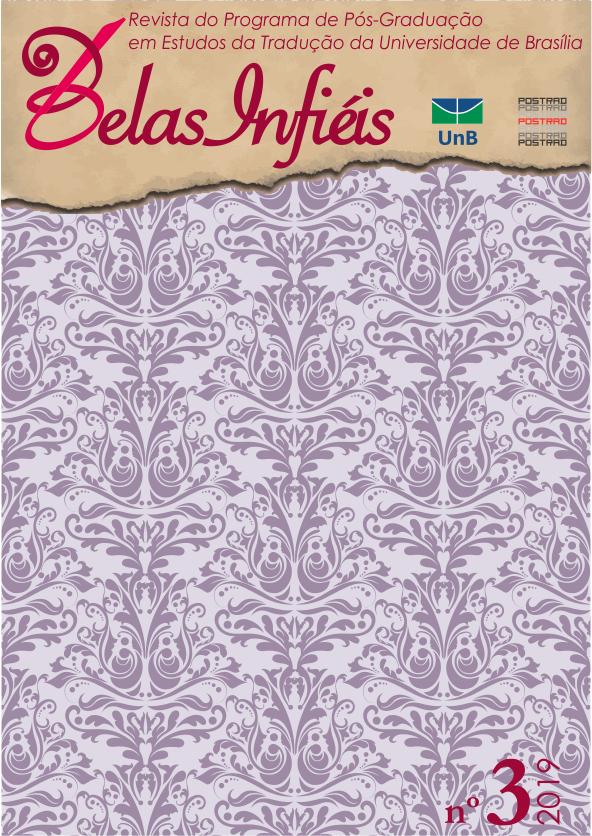Children’s Literature and the Constraints of Literature: Art with Functionality
DOI:
https://doi.org/10.26512/belasinfieis.v8.n3.2019.23132Keywords:
Descriptive Translation Studies. Rewriting. Translation and Adaptation. Translated children’s literature.Abstract
Informed by Descriptive Translation Studies, this article raises some central questions concerning children’s literature and its rewriting. Based on Andre Lefevere’s notion of rewriting and on the understanding that ideological and poetological aspects restrict the publication of literary works, the teleological nature of children’s literature is discussed, as well as the cultural, ideological and market demands that may interfere in the development of children’s literature or literature in general. For translation phenomena to be comprehended in a specific target culture, it is necessary to analyse not just literary aspects, but also the particular constraints of that culture, observing especially the propositions or conceptions of literature and of society held by those engaged in the preparation and promotion of such rewritings. Additionally, different ideological and poetological perspectives can be seen not only in the diachrony that separates older rewritings from contemporary ones, but also in the rewritings published in the same historical period, which may present different proposals that are materialised through different translation strategies in the rewriting itself, in the way of rereading the Other. These theoretical considerations are illustrated with concrete examples of translation projects in distinct literary systems, namely the United States, Poland and Brazil. By discussing the implications of a “literature for” and the permeable borders between the terms usually used in the rewriting of children’s literature (translation, adaptation, retelling), this work seeks to address the complexity of children’s literature with its own definitions and forms of presentation, rather than a perspective that would place children’s literature in a position of inferiority or apart from literature.
Downloads
Downloads
Published
How to Cite
Issue
Section
License
Given the public access to this journal, the texts are free to use but requires the recognition of the original authorship and initial publication in this journal to be properly stated.
 The journal allows the use of works published for non-commercial purposes, including the right to submit the work to publicly accessible databases. Published contributions are the sole and exclusive responsibility of the author(s).Â



















